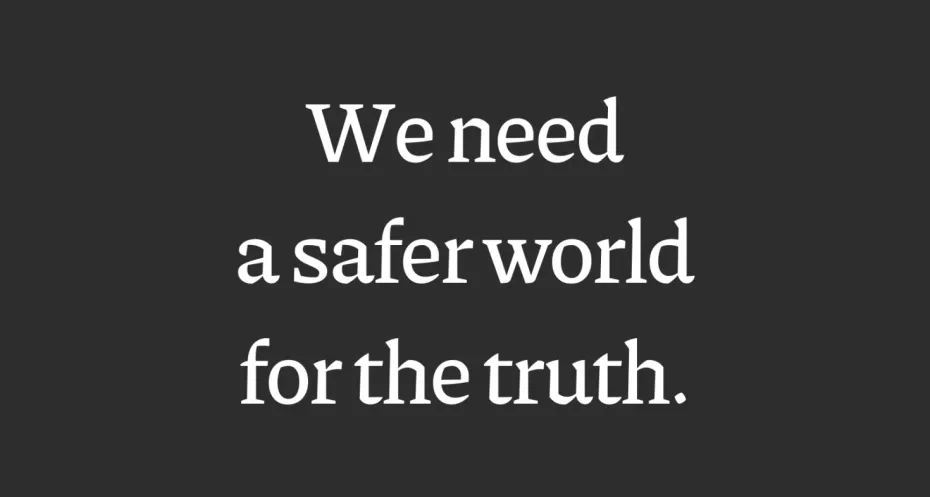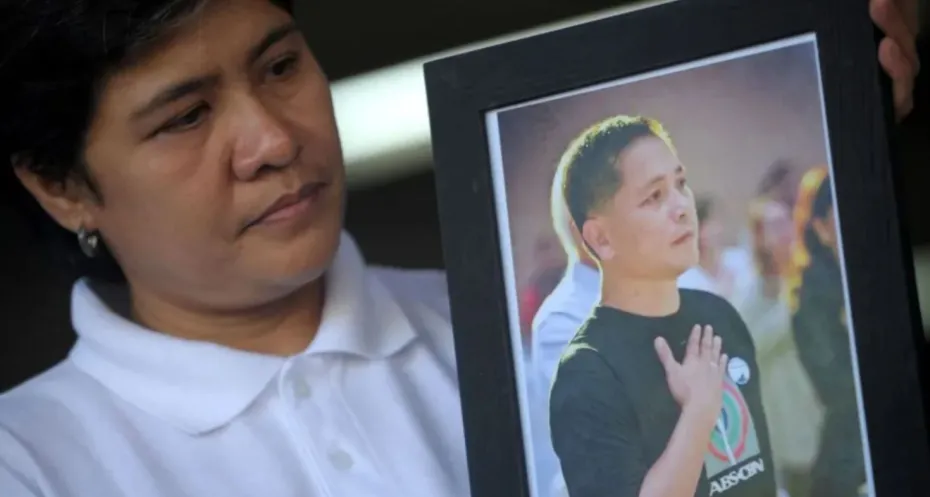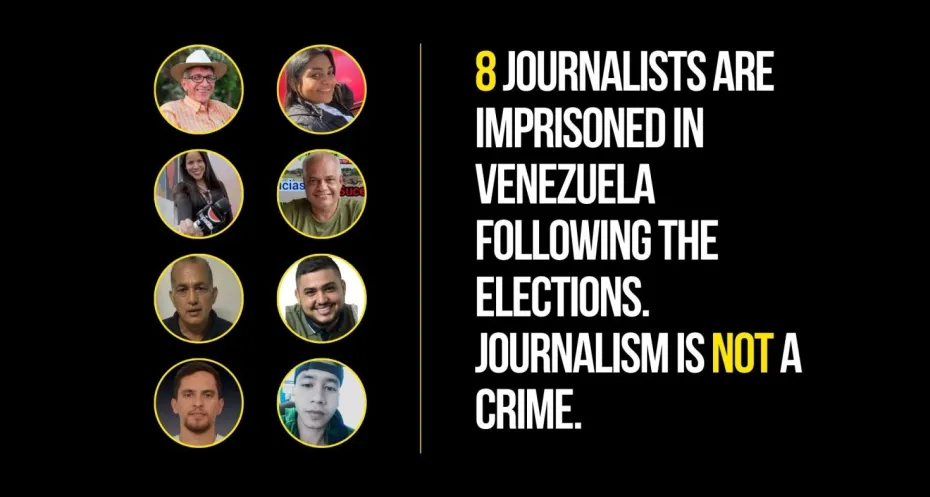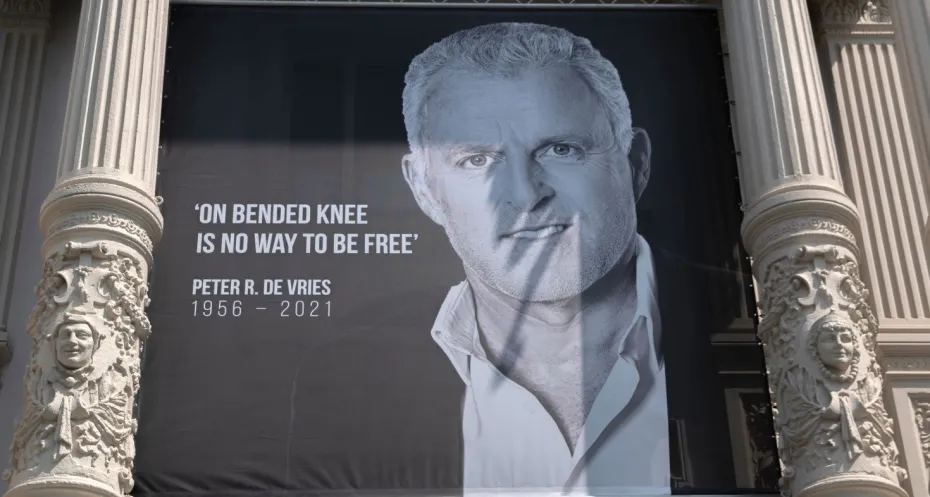The fight against impunity: from Slovakia to Pakistan

Last week it was announced that the Supreme Court in Slovakia is revoking the acquittal of businessman Marián Kocner. He is suspected of having ordered the murder of journalist Ján Kuciak and his fiancée Martina Kušnírová in 2018. Good news for the fight against impunity for violence against journalists.
The "A Safer World For The Truth" project by Free Press Unlimited, Committee to Protect Journalists (CPJ) and Reporters Without Borders (RSF) investigates cold cases of murders of journalists and tries to bring the perpetrators to justice. A new investigation was published this week: Breaking the Silence: An investigation into the murder of Zubair Mujahid. With researcher Jos Bartman we discuss the news about the case in Slovakia, and this latest investigation.
You just finished the (online) press conference on the report in Pakistan. How was that?
“The press conference was very successful. Many journalists were present, as well as the family and their lawyer. They were still ready to fight, even after 13 years. The fact that our investigation found serious flaws in the police investigation, and international press freedom organisations are demanding a reopening, is taken very seriously and is widely discussed in the Pakistani media.”
What are your expectations of the impact of this research?
“The idea behind the publication is that we generate public attention for the case. The family of Zubair Mujahid is going to the Supreme Court in Sindh to file a petition asking for the case to be reopened. When there is public debate, it indicates the importance of it to the Supreme Court, for whom it is also important to know what is going on in society. But it is difficult to measure to what extent the judiciary takes notice of this. But even if there won’t be any progress with this case, it's still a powerful statement. We dive back into it, we haven't forgotten it. The lawyer also said: ‘I often do human rights cases that are completely hopeless, but you should do it anyway, because you probably give the perpetrators some nightmares.’"

The case surrounding Ján Kuciak and Martina Kušnírová is still in progress. What does it mean to you, the news that the acquittal of Marián Kocner has been revoked?
“That is certainly good news. At the end of 2019 and September 2020, two people have already been sentenced, an intermediary and the shooter, for 15 and 25 years in prison respectively. But not yet the intellectual perpetrator, and that is also very typical for murders of journalists. They are well-thought-out. They are political murders with hazy relations between the actual killer, and the one that gives the order.
That also plays an important role in A Safer World For The Truth. In our investigations into cold cases in Pakistan and Mexico so far, we look for who actually gave the kill order, this is what we are most interested in. Of course, you have the one who pulls the trigger and that should definitely be punished, but in the end it's about the politics and crime that is behind it, the mastermind behind a murder. To get there is very difficult and actually hardly ever happens. So the fact that it may now happen in Slovakia is positive.”
Could that also have to do with the fact that this is a case in a country that is a member of the EU?
“In countries like Mexico and Pakistan, the chance is at least much smaller that you can find the mastermind behind a murder of a journalist. The fact that the case in Slovakia has come so far, that the Supreme Court says 'you will not be released, we will continue', says something about the functioning of those institutions. There are certainly shortcomings, but at least here there seems to have been a reasonable investigation. There are people in prison, and the trial surrounding the intellectual perpetrator is still ongoing. In the case of Pakistan and the murder of Zubair Mujahid, there was really nothing.”
Threats and attacks against journalists are increasing worldwide. How can the fight against impunity, and your cold case investigations, counteract this trend?
“We are working on the tip of the iceberg, there are many more crimes against journalists, some of which precede a murder. Most journalists aren't killed because they write something, but because they don't stop writing.
Threatening or murdering a journalist is often a crime for which there are no costs for the perpetrator, you can do that freely in many countries. By tackling cold cases and making progress with them, you can send out a signal. Even with cases of this kind that are time-barred, new evidence can still be found that breathes new life into the case, and ultimately leads the perpetrators to trial. In the case of Ján Kuciak and his fiancée, the conviction of the intellectual perpetrator could send a powerful message to journalists and those who threaten journalists. There are consequences. I hope that this is also the case with the investigation in Pakistan: that even years later, impunity can still be converted into justice.”
Read the investigation 'Breaking the Silence: An investigation into the murder of Zubair Mujahid' here.
Studio Free Press Matters on impunity
Watch the episode of Studio Free Press Matters where Jos Bartman and projectlead Saskia Baas visited Ruth Kronenburg to talk about the project A Safer World For The Truth, and the publication of their very first research: The murder of Regina Martínez Pérez: An opportunity for justice.



